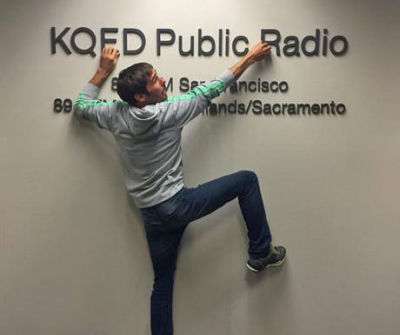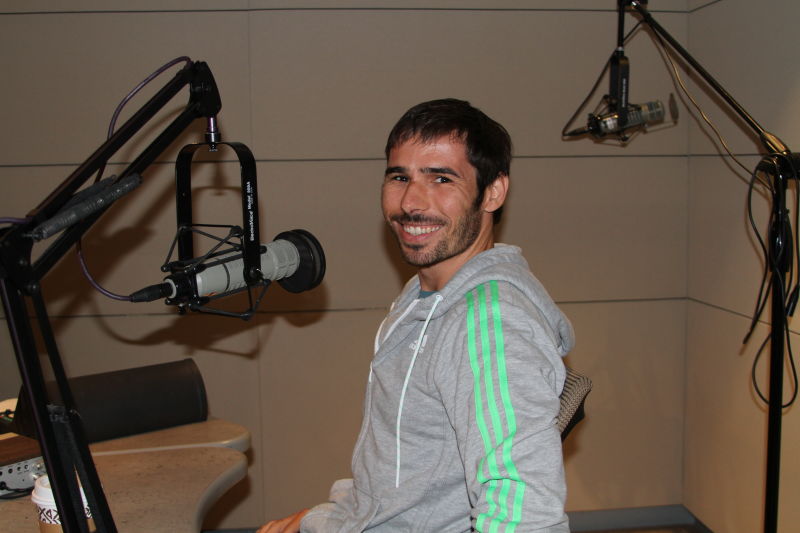Forum host Michael Krasny usually breaks the ice with guests by joking or making an observation about their work. With Kevin Jorgeson, Krasny asked to see his hands. Jorgeson laughed nervously and simultaneously obliged. It wasn't the first time his hands have been a topic of conversation.
Jorgeson and Tommy Caldwell created a bit of a media storm in January, tweeting, Instagramming and even conducting an interview with NPR during their 19-day ascent of El Capitan's Dawn Wall, in Yosemite National Park. The two are the first to free-climb the 3,000-foot monolith, meaning they only relied on ropes to catch them if they fell.

During the Forum interview, Jorgeseon and Caldwell spoke with candor about the difficulty of the climb (at one point Jorgeson thought Caldwell would have to finish without him), the feelings of relief and loss after reaching the top, and in Caldwell's case, rock climbing with third-graders. Below are some highlights from the interview. Or you can listen to the complete interview here.
How did you feel when you reached the top of El Cap?
"For me it was relief. It was like taking off a weight vest. When I stood on top I felt weightless because for me the battle wasn't complete until I stood on top. That was kind of my mentality throughout the entire climb -- it wasn't over till it's over. So when I stood on top, it really was symbolic and it was literal. It was the end of the battle." - Jorgeson
